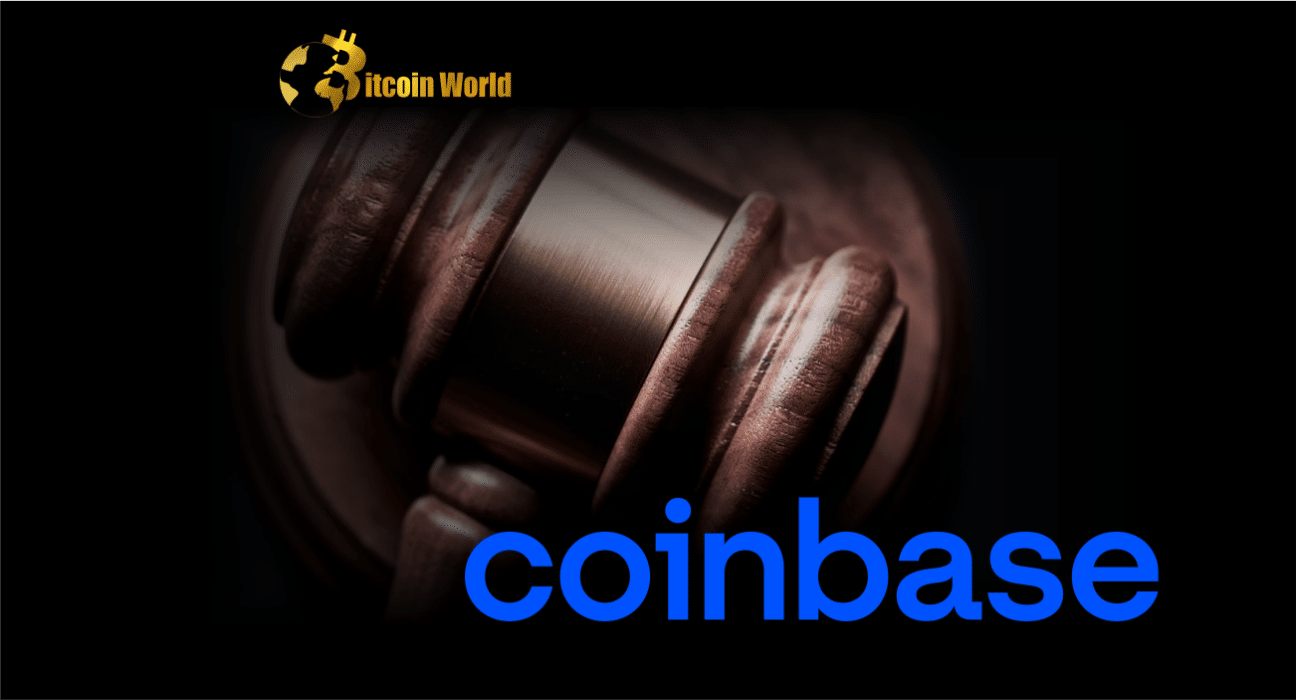The ongoing debate about cryptocurrency regulation just got hotter! Coinbase, a leading crypto exchange, has fired back at the Securities and Exchange Commission (SEC) in a recent amicus brief. But what exactly is Coinbase arguing, and why does it matter for the future of digital assets? Let’s dive into the details of this crucial legal filing.
What’s the Amicus Brief All About?
Coinbase’s amicus brief – essentially a “friend of the court” filing – is part of the SEC’s civil lawsuit against Ishan Wahi, a former Coinbase employee. Wahi is accused of insider trading, using confidential information about upcoming token listings on Coinbase to make illegal profits. While Wahi has admitted guilt in a related criminal investigation, he’s contesting the SEC’s securities fraud allegations.
Coinbase isn’t necessarily defending Wahi’s actions, but rather using this case to challenge the SEC’s broader approach to crypto regulation. Insiders suggest Coinbase is trying to limit the SEC’s reach in what they believe should primarily be a criminal matter. At the heart of the issue is a fundamental question:
Are Crypto Tokens Securities? Coinbase Says ‘Not So Fast!’
The SEC’s lawsuit hinges on the claim that the seven digital assets involved in the insider trading case are actually “securities.” This classification is critical because securities fall under the SEC’s regulatory purview. However, Coinbase strongly disagrees. In their amicus brief, they assert:
- No Securities Listed: “Coinbase does not list any securities on its site.” This is a direct challenge to the SEC’s premise.
- Tokens Aren’t ‘Investment Contracts’: The SEC argues these cryptocurrencies are securities because they are “investment contracts.” Coinbase refutes this, stating these tokens don’t meet the legal definition of a security under federal law. They argue tokens aren’t inherently contracts or investments in the traditional securities sense.
- Open to Securities – With Clear Rules: Interestingly, Coinbase states they are open to listing securities, but only if the SEC provides clear guidelines and regulations. They claim the SEC has been uncooperative in providing this clarity.
Why is Coinbase Accusing the SEC of Overreach?
Coinbase isn’t just arguing semantics; they are raising serious concerns about the SEC’s regulatory approach to the entire crypto industry. Their amicus brief echoes sentiments of frustration felt by many in the digital asset space. Here’s a breakdown of their key criticisms:
- Inconsistent and Unclear Guidance: Coinbase claims the SEC has been inconsistent in its pronouncements and has failed to provide clear direction to crypto businesses. They highlight the SEC’s lack of response to Coinbase’s previous petitions for regulatory clarity.
- Due Process Violations: Coinbase argues the SEC’s enforcement-first approach, without prior clear rules, violates due process. They believe it’s unfair to punish companies for not complying with regulations that are vaguely defined or non-existent.
- Ignoring Rulemaking Procedures: A core complaint is that the SEC is bypassing the established “notice and comment rulemaking procedure” mandated by Congress. This procedure requires agencies to propose rules, gather public feedback, and then finalize regulations. Coinbase believes rulemaking is the only fair and practical way for the SEC to regulate the crypto industry.
Blockchain Association Backs Coinbase’s Stance
Coinbase isn’t alone in their concerns. The Blockchain Association, a prominent trade association for the crypto industry, also filed an amicus brief in February, supporting a more balanced regulatory approach. They argue that the SEC’s current strategy is making the U.S. less attractive for crypto businesses.
The Association’s brief emphasizes:
- Illegitimate Government Behavior: They contend the SEC’s regulatory actions are “illegitimate for a government agency” and violate due process.
- Setting Precedents Through Enforcement: The Blockchain Association believes the SEC is attempting to set regulatory precedents through enforcement actions rather than through transparent rulemaking. They point to past instances where the SEC has joined DOJ lawsuits to expand its reach in securities law violations against unnamed parties.
What’s the Bigger Picture and What’s Next?
This amicus brief is more than just a legal tactic in an insider trading case. It’s a significant escalation in the ongoing tension between the crypto industry and the SEC. Coinbase and the Blockchain Association are essentially arguing that the SEC’s current approach is stifling innovation and creating unnecessary uncertainty in the digital asset market.
Here are the key takeaways:
- Clash Over Security Definitions: The fundamental disagreement remains on whether and which crypto tokens should be classified as securities.
- Demand for Regulatory Clarity: The crypto industry is pleading for clear, comprehensive rules from the SEC, developed through proper rulemaking procedures.
- Impact on US Crypto Landscape: The outcome of this regulatory battle will significantly impact the future of crypto businesses in the United States. Will the US become a hub for crypto innovation, or will companies move to more regulatory-friendly jurisdictions?
The legal arguments presented in these amicus briefs, especially concerning due process and the need for rulemaking, are likely to resonate beyond this specific case. As the SEC continues its crypto enforcement actions, expect to see more pushback from the industry demanding a more transparent and predictable regulatory framework. The future of crypto regulation in the US is far from settled, and this case is a crucial battleground in that larger fight.
Disclaimer: The information provided is not trading advice, Bitcoinworld.co.in holds no liability for any investments made based on the information provided on this page. We strongly recommend independent research and/or consultation with a qualified professional before making any investment decisions.




